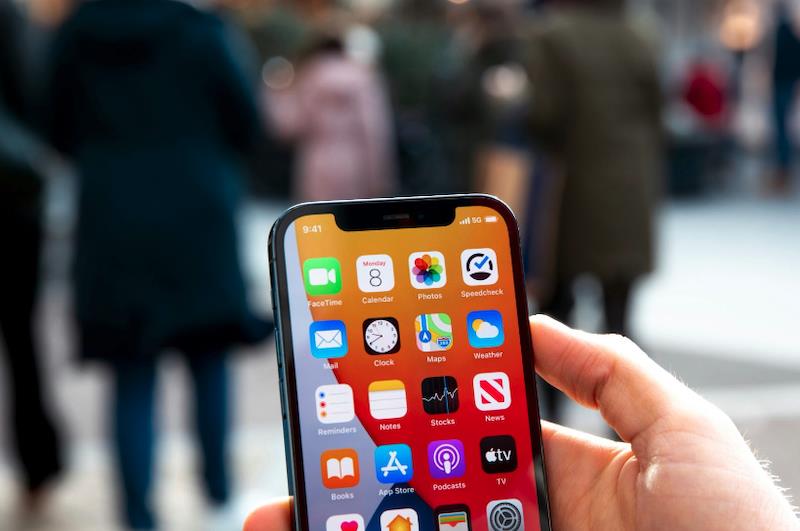
What Is ICCID? Understanding SIM Card Number Check Codes And ICCID Numbers Robotics & Automation News
Effective SIM card management is becoming more and more important in the world of IoT (Internet of Things). One of the most important components of a SIM card is the ICCID, a unique identifier that plays a key role in managing and identifying SIM cards.
In this article, we will explore what an ICCID is, how it differs from other SIM identifiers, and why it is so important for managing IoT SIM cards . We will also discuss how ICCID numbers are used to manage and track SIM cards in IoT devices.
What is ICCID?ICCID stands for Integrated Circuit Card Identifier. It is a globally unique number assigned to every SIM card, following the ISO 7812 standard, which is also used to assign unique numbers to credit cards and other similar entities.
This identifier not only serves as the SIM card's identification number but also contains essential details such as the issuing country, network provider, and the card's unique identifier within the network.
The ICCID is a 19- or 20-digit number printed on the SIM card itself. Its structure is divided into several segments. The first part of the ICCID refers to the issuing authority, known as the Major Industry Identifier (MII), which indicates the type of card.
This is followed by the country code and the network provider identifier. The remaining digits provide the card's unique serial number. Additionally, the ICCID includes a checksum, a component that verifies the accuracy of the entire number to prevent errors during transmission or input.
By breaking down this SIM card number check code, network providers can gain a deeper understanding of the SIM card's origin purpose and guarantee it's properly integrated into the IoT environment.
ICCID vs. Other IdentifiersSIM cards have multiple identifiers, and it's important to understand how ICCID differs from other common identifiers like IMSI (International Mobile Subscriber Identity) and IMEI (International Mobile Equipment Identity).
The ICCID identifies the SIM card itself, while the IMSI is used to identify the user of the SIM card on a network. The IMEI, on the other hand, identifies the device itself, not the SIM card.
While all these identifiers are important, the ICCID plays a central role in SIM card management. Unlike IMSI and IMEI, which are used mainly for user identification and device tracking, the ICCID is the key to managing and tracking SIM cards in a large IoT environment.
Why ICCID is Essential for IoT SIM CardsIn the IoT world, where thousands of devices might be connected, keeping track of SIM cards is a complex task. This is where the ICCID becomes essential. It is the fundamental method for managing SIM cards and guaranteeing that every Internet of Things device stays connected and operates as intended.
Here are some reasons why ICCID is critical for IoT SIM cards:
The ICCID allows network providers to track each SIM card and its usage. With thousands of IoT devices using SIM cards, having a unique identifier helps manage these devices efficiently. The ICCID is used during the activation process of a SIM card. This identifier also helps when a SIM card needs to be deactivated or replaced in the event of device failure or loss. IoT service providers use ICCID numbers to manage billing and make sure that the correct device or SIM card is being charged for its data usage. Without the ICCID, managing billing across multiple devices would be a challenging task. The ICCID helps in maintaining secure communications between IoT devices and their network. Since each SIM card has a unique identifier, it's easier to detect and manage unauthorized access or security threats.The ICCID is indispensable for efficiently managing SIM cards in the IoT ecosystem. Its ability to uniquely identify and track each SIM card simplifies operations, from activation and billing to security and deactivation.
Relying on the ICCID guarantees that service providers can keep control over their devices, keep systems secure, and manage the operational demands of a large-scale network with ease as IoT networks continue to expand and become more complicated.
Without this unique identifier, managing the ever-expanding number of IoT devices would be far more difficult and error-prone.
Using ICCID to Manage IoT SIM CardsManaging IoT SIM cards at scale requires a system that can handle thousands, or even millions, of devices. Here, the ICCID plays an important role. By assigning each SIM card a unique ICCID number, service providers can monitor and manage IoT devices more effectively.
Some common tasks that rely on the ICCID for managing IoT SIM cards include:
-
Keeping an accurate record of every SIM card using the ICCID guarantees that service providers know the status and location of each SIM card.
In the event of network issues or device failures, the ICCID helps in identifying and resolving problems quickly.
The ICCID is utilized during the transfer procedure if a SIM card has to change network providers. This guarantees that the right SIM card is found and transferred correctly without interfering with service.
The ICCID number plays a central role in managing IoT SIM cards. It serves as the unique identifier for each SIM card, enabling effective tracking, billing, security, and overall management of devices in IoT ecosystems.
By understanding the importance of the ICCID, companies managing IoT devices can streamline their operations and keep their networks running smoothly.
Legal Disclaimer:
MENAFN provides the
information “as is” without warranty of any kind. We do not accept
any responsibility or liability for the accuracy, content, images,
videos, licenses, completeness, legality, or reliability of the information
contained in this article. If you have any complaints or copyright
issues related to this article, kindly contact the provider above.


















Comments
No comment